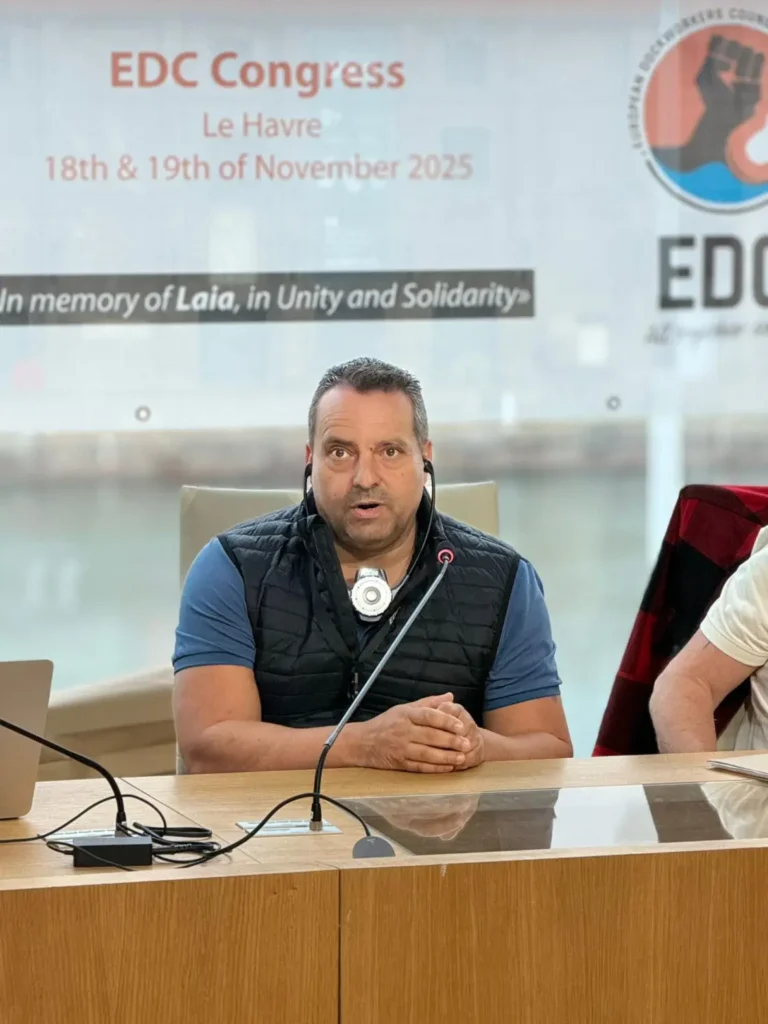Le Havre, France – On November 18 and 19, 2025, the European Dockworkers Council (EDC) held its Congress in Le Havre, bringing together nearly 300 union delegates from 10 European countries. This meeting took place during a period of profound transformation in the port sector, marked by ecological and digital transition, increasing social challenges, and geopolitical tensions that influence the future of European ports.
The port sector remains an essential pillar of the European economy and sovereignty. However, it faces significant challenges such as automation, digitalization, international competition, and growing regulatory pressure. In response to these challenges, EDC reaffirmed its commitment to protecting jobs, defending decent working conditions, and fighting against social dumping and deregulation, which threaten stability and social justice in ports.
One of the central themes of the Congress was the analysis of ongoing transitions: digitalization, automation, and ecological transition. EDC emphasized that these transformations must necessarily be accompanied by solid economic and social guarantees. The modernization of European ports will only be sustainable if it respects the balance between economic development, environmental protection, and workers’ rights.
In the current international context, the geopolitical dimension has acquired particular importance. EDC firmly opposed the military use of European commercial ports, defending their role as spaces for exchange, development, and cooperation. In light of the European Union’s plans to adapt ports to military mobility needs, EDC warned of the risks of turning civilian infrastructure into instruments of war and reaffirmed its commitment to peace and solidarity among peoples.
Unity and international solidarity remain the fundamental values of European dockworkers and port workers. In situations of conflict or external pressure, union cooperation and mutual support are essential for defending workers’ rights and safety. EDC Congress in Le Havre was, once again, a space to strengthen these bonds and build collective responses to current and future challenges.

EDC also called on European policymakers to ensure the effective participation of stakeholders in developing a balanced, sustainable, and socially just port strategy. The organization proposed concrete measures such as strengthening social dialogue, investing in port security and ecological transition, and rejecting the liberalization of the sector.
This Congress also addressed the issue of repression and criminalization of union action, which increasingly affects the delegates of our unions. A respected union and respected union members are the only way to establish the social dialogue necessary for the stability of our ports.
Finally, this Congress marked the beginning of a new chapter for EDC, with the appointment of Spanish Antolín Goya as the new General Coordinator. Goya, who is also the main leader of Coordinadora Estatal de Estibadores Portuarios, received unanimous support from all delegates. He stated: “We have ahead of us a very exciting project, full of life and energy, where the defense of our profession, based on loyalty, independence in decision-making, and unity, constitutes the backbone that sustains us.”

